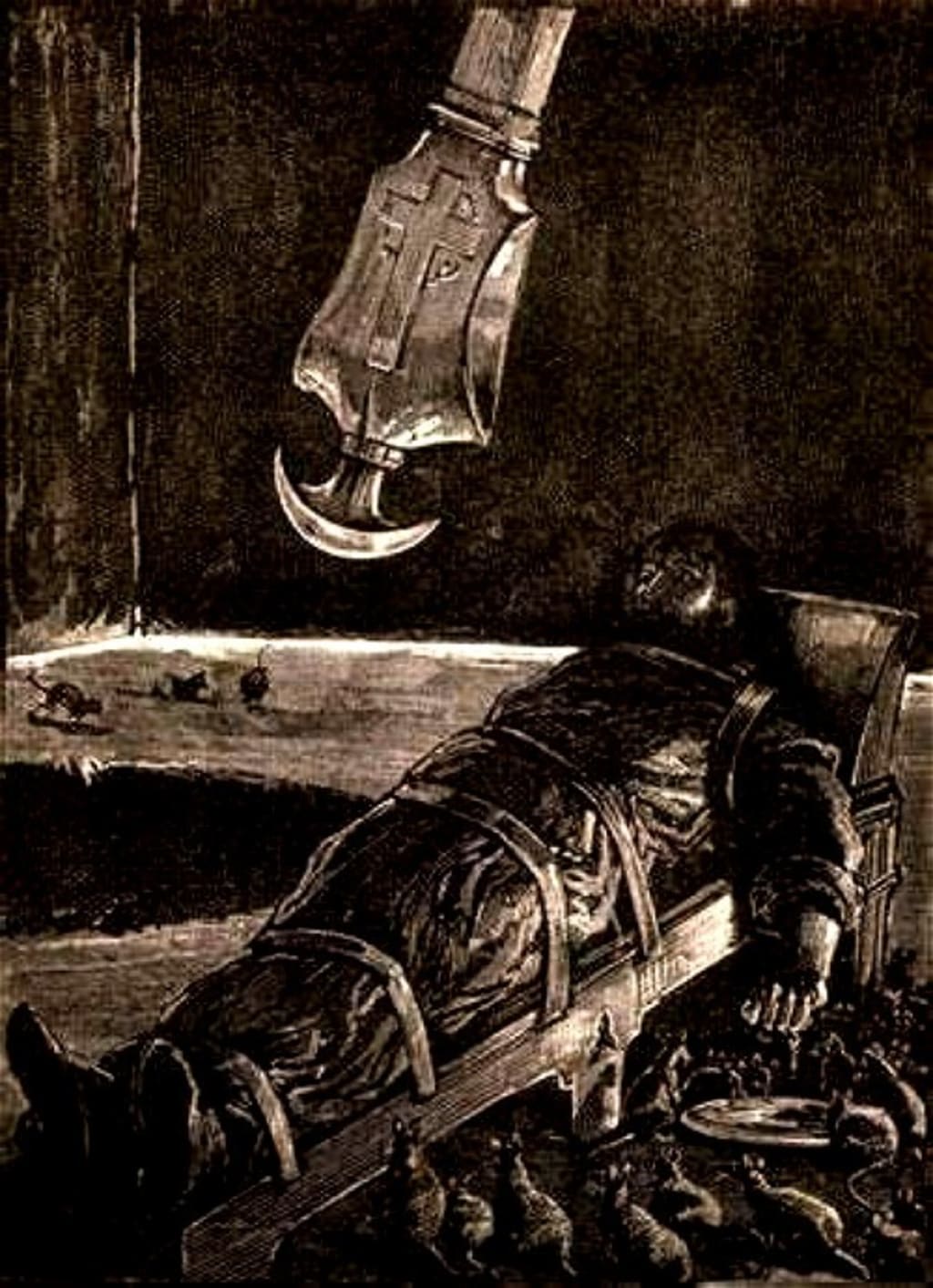
The world might be likened to a maze. Or, perhaps all of life. Regardless, we're all "rats in an all-inclusive cheese." (Charles Fort)
Deceptively, Fate leads us by the nose, little rat nose, as it were, sniffing the way to our favorite nibble; or rather, our compulsion. Our anticipated pleasure. Our "dream."
We turn corners and hit dead ends, eternally searching for that elusive bit of heavenly joy to plop between little rat fangs and masticate, or rather, one imagines a rat devours suchlike whole.
In the fullness of time, barring the rat discovering his cheese repast, he will remain imprisoned in the maze, slowly starving, wasting away into rat nothingness, becoming a desperate, scrawny, ravenous rat, one that would certainly devour its children like Saturn devouring HIS children. Francisco Goya represented this with sickening aplomb in his famous painting. The Dream of Cheese is dead; the Rat has succumbed to his torment, dying along, trapped in the mind-cracking hell the research scientist has crafted carefully for him.
And that cheese is like all of our dreams and aspirations. We seek to find, possess, and taste the life-sustaining nutriment of what we perceive will sustain us. Otherwise, the world, our "life," is a cold, meaningless, sterile maze upon which we twist and turn to find our pathway, all the time encountering obstacles and barriers, brick walls of whitewashed deceptions; the lies we tell ourselves, that proceed from the "programming" of conventional reality. Or what we believe to be so.
The Narrator, unnamed as per usual, of Poe's "The Pit and the Pendulum," is mocked by the white-lipped, thin-lipped silent speech of the Inquisitorial judges (depicted as silent, white; worm-like lips; not men, living maggots), their words disappearing into this terror-filled faint as he awakens in the cold, sterile vulva of torture. Below him, is the Abyss, a great "pit" in the center of the room into which he almost perishes. It is blackness all the way down--except, there is an intimation of something below, in the black, almost too hideous for the Narrator to describe. ("Oh, those cruel judges!")
"The agony of suspense grew at length intolerable, and I cautiously moved forward, with my arms extended, and my eyes straining from their sockets, in the hope of catching some faint ray of light. I groped about the recess; but no door, no opening, disclosed itself."
In the darkness he creeps around in a circle, trying to divine exactly the dimensions of his cell. When the illumination brightens the walls, he sees he is surrounded by images of devils and tormented souls, the Inquisition trying to bring home the point that he is condemned to the fiery pits of Tartarus, forever more. But, below him, is not such a pit of fire. It is rather a bottomless pit of punishment, one in which the Reader might assume the Narrator to fall, forevermore, were he to be cast bodily, head-first, into it.
Above him, though, is an even more ghastly horror. Swinging back and forth, depending on the arm of Father Time (the Reaper's Image), is a deadly pendulum scythe, a trenchant and unthinkable means of dispatching this tormented man, keeping him staring Death in the eyes until the final swing, which should see him cleft in twain. Slowly, oh so slowly, the killing arc of the thing as it descends is a cruel, sadistic form of psychological torture only the Holy executioners of the Inquisition could have for heretics conceived.
Strapped down, a saucer of nauseating, overly spiced food just out of reach, he rubs the bonds that tie him to the small bed. Rats emerge, chewing at the spiced food on his bonds, as, closer and closer the pendulum swings, threatening bisection and death. The rats, the outgrowth of his own deep, subconscious thoughts and desires, free him from his constraint. The vermin cowering in the dark, the buried, repressed, manic, and primitive feral urge to survive rendered into symbolic life, allows him to escape.
Finally, the walls, festooned with their demon horde of twisted, mocking, maniac tormenters, begin to close in, intense heat issuing forth from them, pushing the Narrator closer and closer to the lip of the infernal Pit, the Abyss, his personal Hell. Suddenly, as if in the final throes of his twisted, terrorized mind a ray of light comes creeping in, hope breaks through the clouds of killing despair, and the "armies" arrive to liberate the city, and presumably the captive of the Inquisitorial dungeons of Toledo. But, is this last-minute "Deus Ex Machina" real, or is it simply the delusions of a dying brain? The Reader is left to wonder.
"My cognizance of the pit had become known to the inquisitorial agents -- the pit, whose horrors had been destined for so bold a recusant as myself -- the pit, typical of hell"
Friedrich Nietzsche wrote symbolically of the "Abyss," a place wherein every man, his "rope" of life's journey stretched from one side to another, inevitably stares down upon his sojourn to the other side. If he dare look down, stare deep into the yawning black chasm of his dissolution, ultimate extinguishment, he may fall headlong into the black "Slough of Despond." If he reaches the other side, he is a "Superman" (in Nietzsche's parlance). But his fate could well be death. (Nietzsche shrugs at this, saying "Amor fati"; i.e. "love your fate," regardless.)
The Pit is bottomless. From the birth canal of darkness, we emerge into the undeniably bright and cruel light of the world, screaming our fear and consternation and hunger and confusion. What a rude interruption and imposition on our peace is birth!
At the end of a long life, (or in an instantaneous blink of an eye, some tragic fate befalls us, taking us out of the only world we've ever known, suddenly), we find our journey back down that abyss of darkness and despair resumed; to an end we know not what. All of our masks removed, every human affectation and vanity stripped from us, the money one's earned "not worth a rolled dime." Even pretensions of being a "Superman" are rendered a moot point.
And so the Pit claims us, and cackles, and the madness of the hour, at the stroke of midnight, as the clock chimes out the that this is the convergence between two worlds, the Borderland, drives us deeper, deeper into that dark womb. And, as Poe put it in a different tale, "And Darkness and Decay and the Red Death held illimitable dominion over all."
But Death here is colored not Red. It's awash in the deepest black.
Amor fati.
Christopher Lee reads Edgar Allan Poe - The Pit and the Pendulum
About the Creator
Tom Baker
Author of Haunted Indianapolis, Indiana Ghost Folklore, Midwest Maniacs, Midwest UFOs and Beyond, Scary Urban Legends, 50 Famous Fables and Folk Tales, and Notorious Crimes of the Upper Midwest.: http://tombakerbooks.weebly.com






Comments (1)
I would term this review drearily worrisome & brilliant. Great job, Tom.